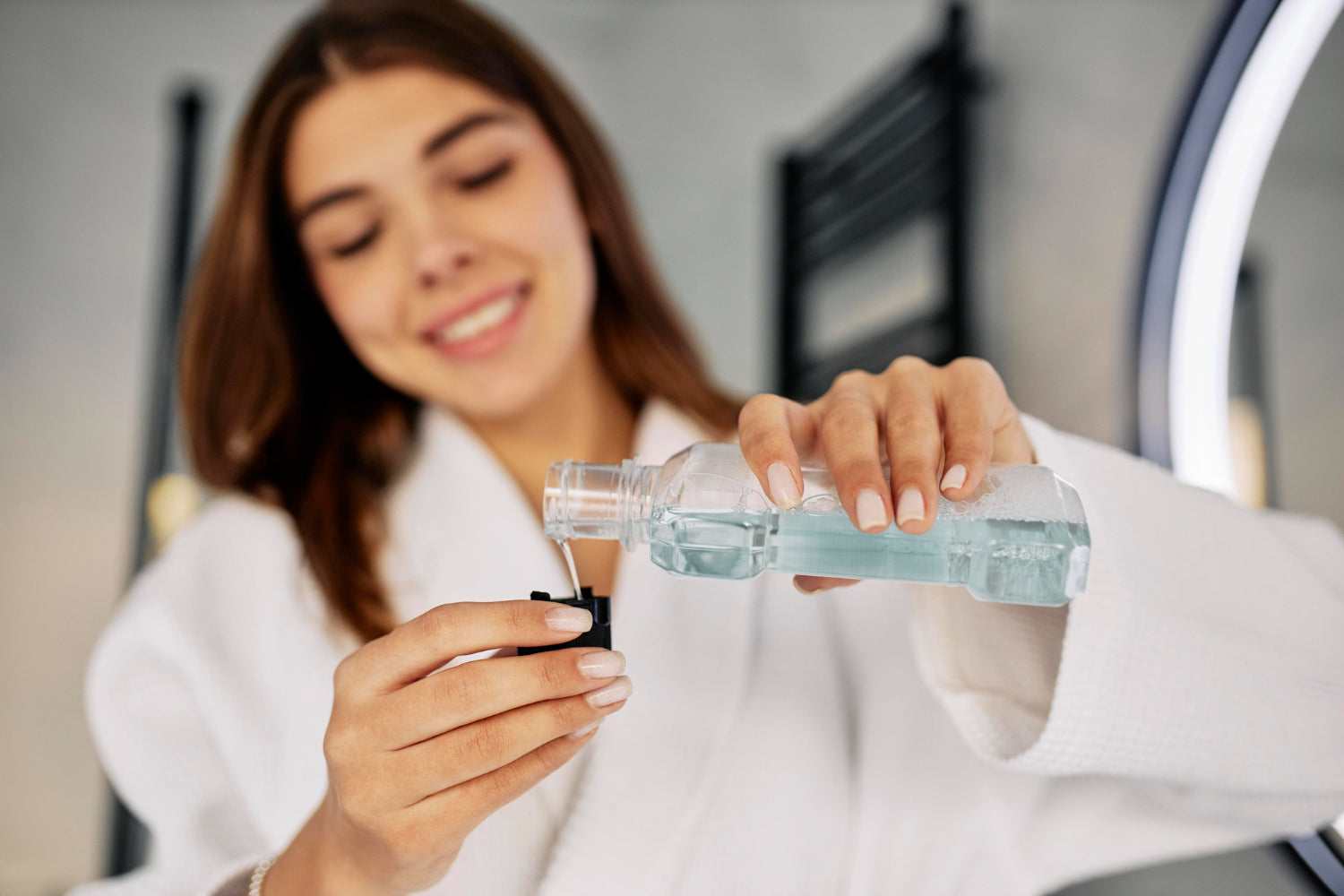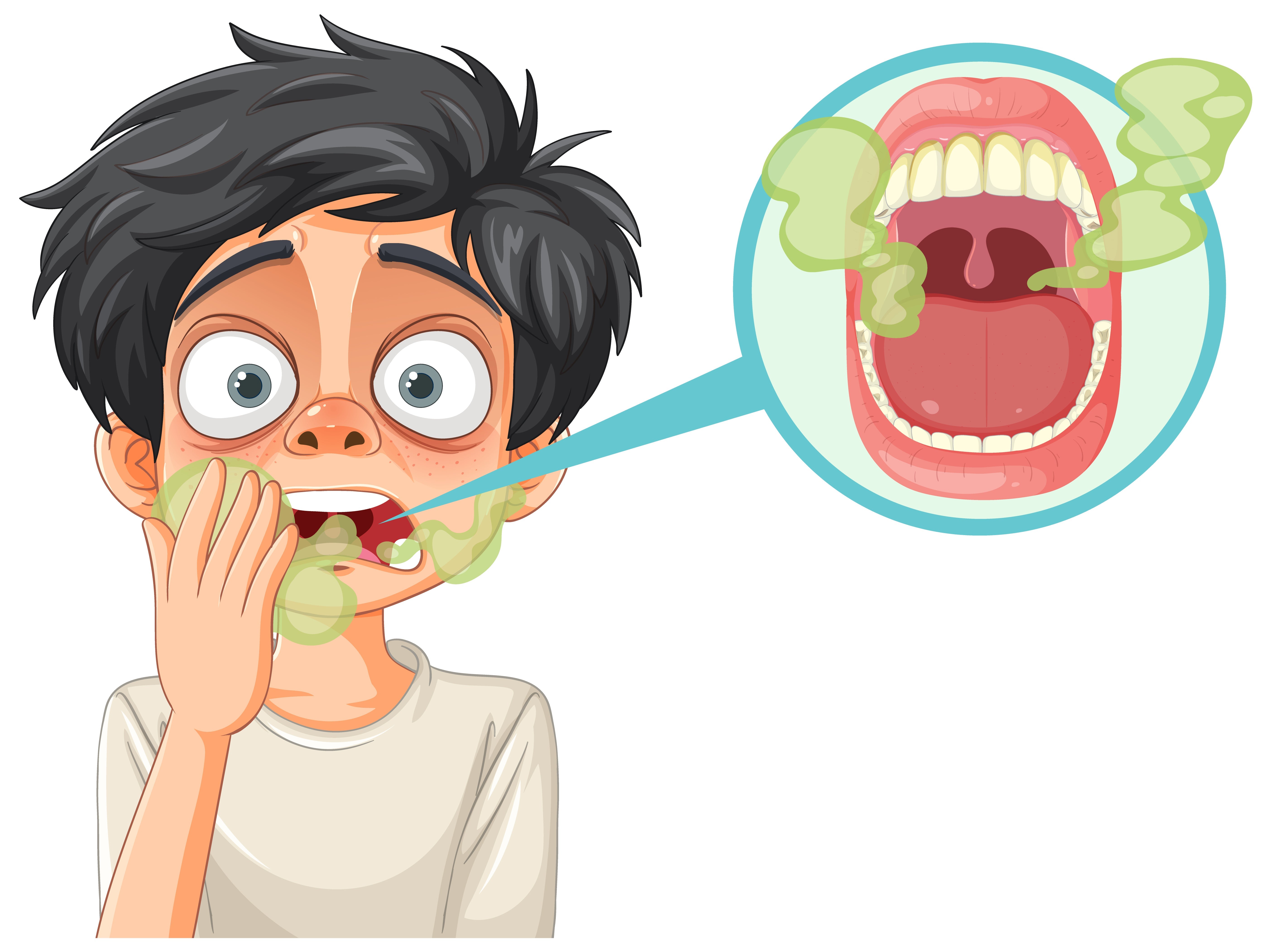A mouthwash does not replace brushing, flossing or interdental brushing, but it is a valuable addition.
Antibacterial mouthwashes are designed to loosen plaque on and between teeth, kill germs, and thus protect against tooth decay and gum disease. This is especially true if cleaning between teeth is neglected.
Many people rarely or never use dental floss or interdental brushes. Instead, they try to clean the interdental spaces with a manual toothbrush or electric toothbrush. In principle, the bristles of high-quality toothbrushes or brush heads are ground in such a way that you can also clean the interdental spaces in this way. However, you must brush carefully and with skill. Firm, jerky movements can quickly injure the gums, making them vulnerable to inflammatory gum disease.
A mouth rinse can help clean the spaces between your teeth. Although it is less effective than mechanical cleaning, it is very easy to use: after brushing your teeth, simply rinse your mouth with the mouthwash for about one minute - and you're done. However, you should use a mouthwash no more than once or twice a day. According to a Europe-wide study, too frequent use could increase the risk of cancer in the upper air and food passages. However, the correlations still need to be studied in more detail.
Mouthwash and mouthwash: What's the difference?
The shelves in drugstores, supermarkets and discount stores are full of liquid products for oral hygiene. Sometimes it says mouthwash, sometimes mouthwash. Is there a difference?
Mouthwash is diluted with clear water before rinsing and is primarily intended to freshen the breath. Mouthwash is used undiluted and thus fights plaque and germs. If you take a closer look, you will recognize caries-preventive, gum-care and medicinal mouthwash.
Caries-preventive mouthwash contains fluoride, which loosens plaque and inhibits new formation. In addition, caries-reducing additives such as stannous fluoride or amine fluoride are often included.
Gum care mouth rinses contain herbs or ingredients that can have a soothing effect on irritated gums and stimulate blood circulation to make the gums more resistant. However, they do not fight the inflammation itself.
Medicated mouthwashes contain chlorhexidine, a germicidal substance that effectively fights plaque bacteria. In fact, you could say that a chlorhexidine rinse replaces tooth brushing, but with side effects if used for a long time: Teeth become discolored to a brownish color. In addition, the sense of taste is disturbed.
When are mouth rinses recommended?
Mouth rinses are recommended when
the tooth necks are exposed.
motor skills are impaired and therefore thorough brushing is difficult.
the dentist has performed periodontitis treatment.
you wear fixed braces.
The use of medical mouth rinses is useful if
you want to support the healing process after an operation in the mouth area.
you cannot comply with oral hygiene in the usual way due to special circumstances (travel, hospitalization).
Children can also use mouth rinses, but only if they reliably master spitting out. Otherwise, white spots may form on the teeth due to fluoride overdose. Also, make sure that children use alcohol-free mouthwashes.




Leave a comment
All comments are moderated before being published.
This site is protected by hCaptcha and the hCaptcha Privacy Policy and Terms of Service apply.